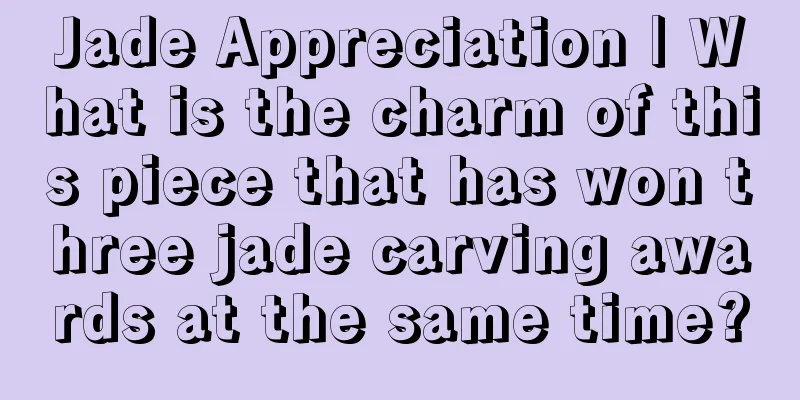Jade professional knowledge: "Jade Luster"

|
Jade is a jade stone with a polycrystalline interwoven structure. Simply put, it is a collection of countless translucent mirrors with their own reflective properties. The "mirrors" of jade not only reflect each other, but also shoot at each other. These optical reactions constitute what we often call the gloss of jade. In the jargon of the jade industry, the best quality light performances are fluorescent light, oily light and rigid light, followed by glass light and then waxy light. The worse performance is stone light. The luster of jade is actually a normal optical phenomenon. The micro-crystals inside the jade are arranged neatly and orderly, causing the overall refractive index to become more obvious after light enters the jade. Jade with a fluorescent feeling can give people the feeling that the jade is brighter than its surroundings at any angle. Theoretically speaking, all jadeite of the glutinous grade and above may exhibit the fluorescence phenomenon, and the closer the shape of the jadeite is to a perfect circle, the more obvious the fluorescence effect will be. This is also one of the reasons why carvers try to make spherical objects and figures as round as possible in finished jade products. Oily sheen means that visually, we can see that the jade seems to have been brushed with oil. This requires the jade crystals to be quite fine. When light enters jade, the same beam of light is decomposed into many rays of uniform size that gradually diffuse. They are evenly distributed on the surface of jade crystals, ensuring the transparency of the jade while also reflecting the shape of the light when it shines on a single crystal. Rigid light represents the extraordinary transparency and reflective ability of jadeite crystals. In the jade market, we often hear the terms "full of hardness, having a strong flavor, and having hardness", which refer to this ability. Vitreous luster is a light characteristic possessed by most jade products. Jadeite with a glassy luster usually has crystals of average quality and a relatively tight arrangement. As for the waxy luster and stone luster, they usually appear on inferior jadeite. The main problem with jadeite of poor quality is that the crystals are loose, the quality is tender, and the light transmission effect is poor. No matter how good the water head of the jadeite is, it will have a loose visual effect. This is wax light. Stone luster, as the name suggests, means that jade is like stone and its luster is not strong. After polishing, jadeite with this kind of glossiness will hardly have the transparency of other types of jadeite. It lacks spirituality and looks like a piece of stone.
|
<<: What’s the use of good carving? Emerald's other half
Recommend
Buying jade, did you buy the right one? See the meaning of different jades
There are various kinds of jade products on the m...
If these 3 phenomena appear on jade, 90% of them are likely to be natural jade.
Many friends have asked me that they were very ca...
Is the gender of Jade Guanyin a mystery? You can tell whether it is a boy or a girl at a glance!
The same is true of the Jade Guanyin statue. Whet...
The mysterious color of jadeite - black jadeite
"Mo" means black, like graphite; "...
Jade carving, the art that "lives" on jade!
jade carving The carver carves, the viewer carves...
This piece of jade looks like abdominal muscles. It is a good gift for anyone.
That’s right, the jade that looks like abdominal ...
Investment and Collection of Jadeite
Now let’s discuss with you the topic of jade inve...
Two pieces of yellow jadeite from the Damakan mine were carved into fine pieces.
Today I would like to share with you two pieces o...
Jade has five colors, jadeite has six colors
The ancients said: "Jade has five colors.&qu...
Which type of jade is the best? Do you really understand jade?
Which type of jade is the best? The more transpar...
Who says jadeite collection is priceless? That means you are looking in the wrong direction!
The speed at which jade prices have increased in ...
Burmese jade, the ultimate beauty of jade!
Since ancient times, jade has been regarded as th...
A complete guide to common jadeite purchase questions for novices. It’s not too late to read it now!
As jadeite becomes more and more popular, many ne...
What is the meaning of Jade Guanyin? What are the benefits of wearing Jade Guanyin?
In Nande, a small town on the border of Yunnan, d...
Jade carving masters, 8 carving techniques you must know
The raw stone is rigid, cold and lifeless, but in...









